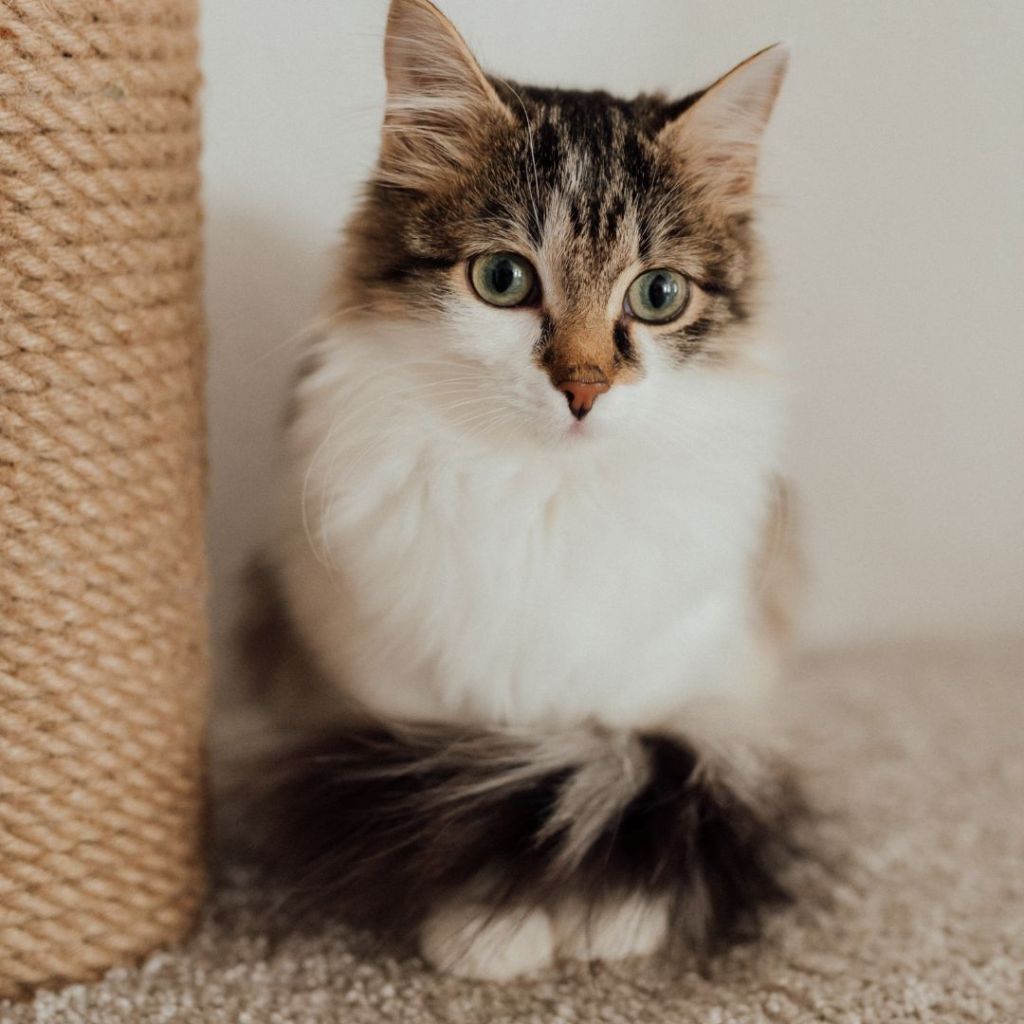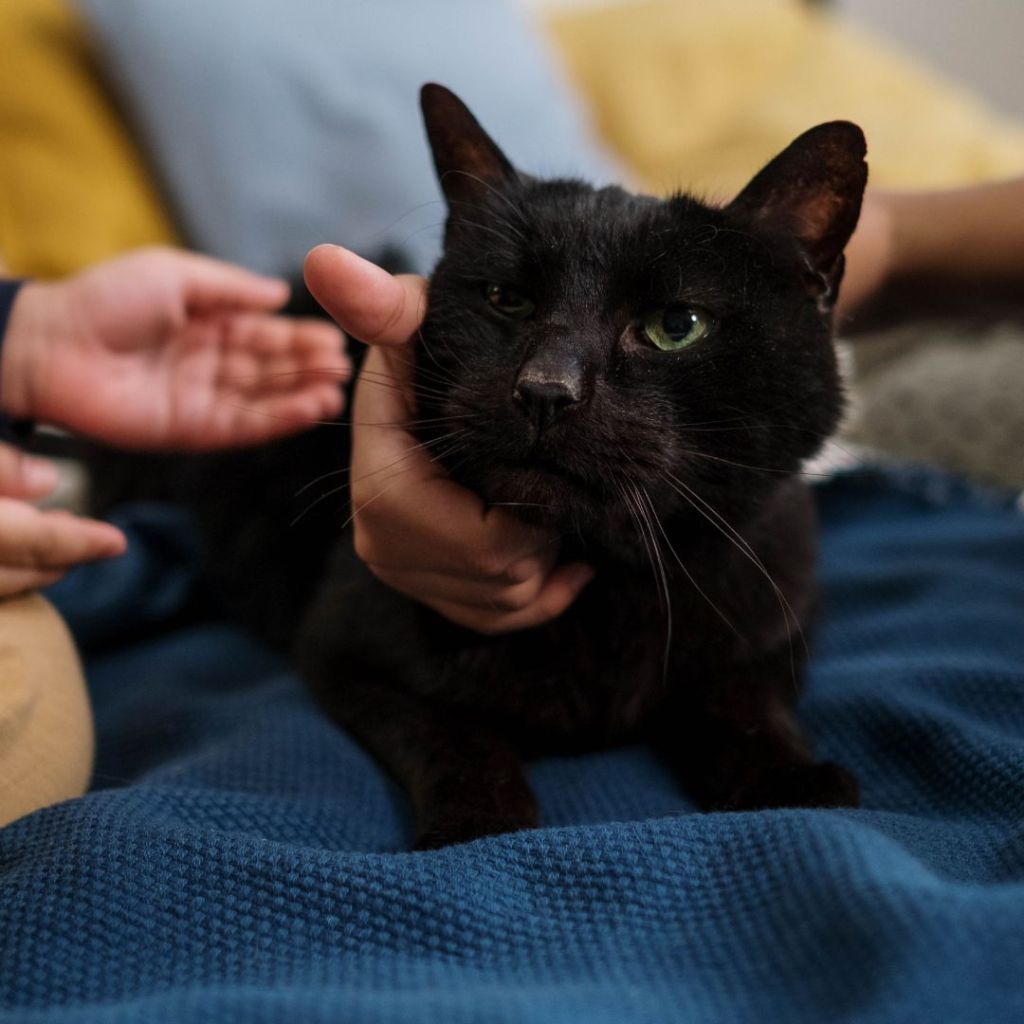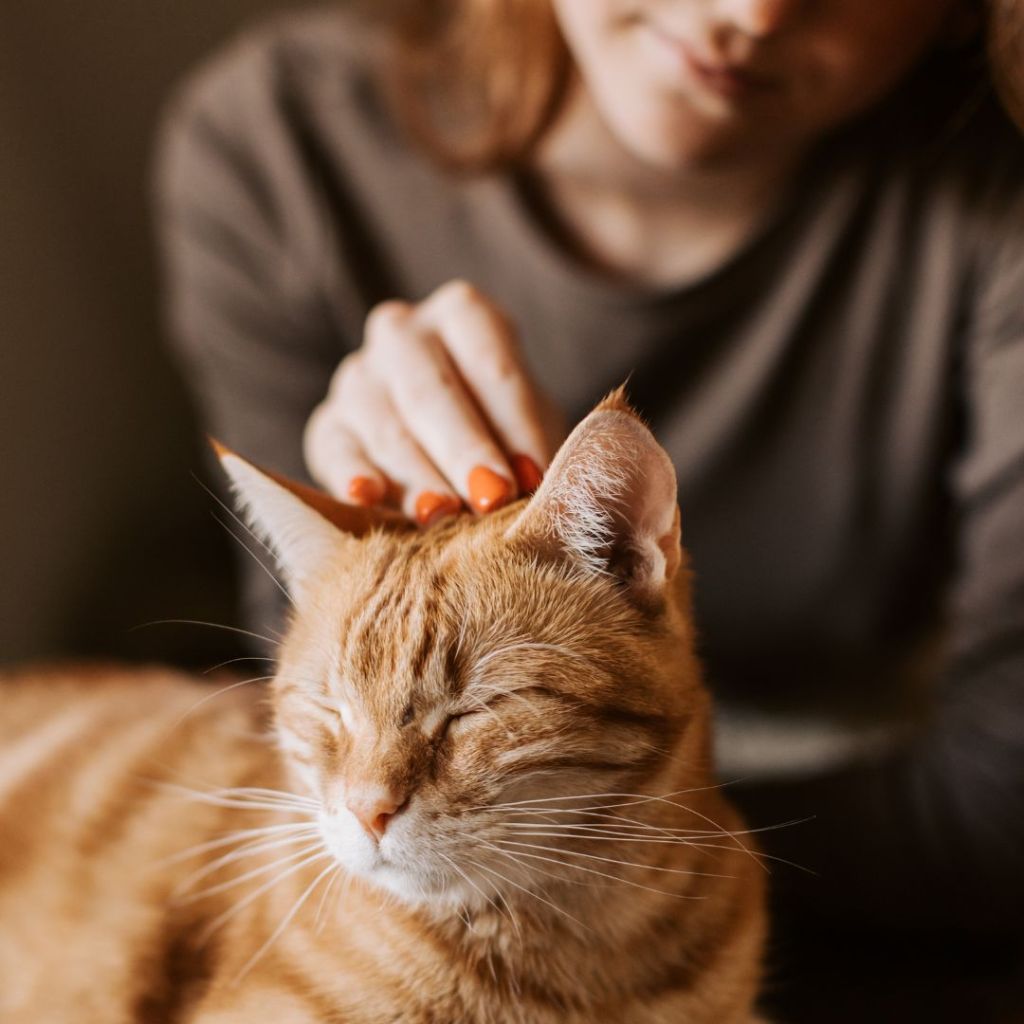
How to Safely Introduce Your Cat to a New Baby
Jan 19 2024.
Having a baby is an exciting event, but it also leads to big changes at home—including for your kitty! Any disruption, whether it’s moving house or a sudden shift in routine, can be stressful for Mr Whiskers. Hence, it’s important to properly introduce your cat to a new baby. This way their relationship can get off to a stress-free start! Not sure what steps to take to make it pawsitive experience? Below, Cat in a Flat breaks down what to expect and the best steps to take to safely introduce your cat to a baby.
Table of contents
Will my cat like my baby?
Will your cat like your baby? Bringing a new baby home is a major life event for everyone in the family—including your beloved feline. While cats do prefer the same daily routine and familiar people, this doesn’t mean Mr Whiskers and your baby won’t get along. As long as you take the proper steps to introduce your cat to a new baby, they will learn to coexist and, hopefully, become lifelong friends. Remember, the most important factor in introducing Mr Whiskers to any new family member—whether it be a new kitten or a baby—is patience.

How to prepare your cat for a new baby
A baby can bring a lot of disruptions into the home. If your fur friend is used to a calm and quiet household, all the new smells and sounds will probably feel overwhelming and stressful. Your and your kitty’s routines will change. So, it’s important to establish a new routine before you bring your baby home. This will make it much easier to introduce your cat to a new baby.
- Let your cat explore the nursery. Mr Whiskers will surely be curious about all the new baby-related items you’re stocking up on. So, let your kitty sniff and explore! Once your fur friend becomes accustomed to the new items in the house, they’ll probably ignore them. Just take note that you may need to provide some scratching posts in the nursery. These will prevent your cat from scratching your baby furniture and other items!
- Before your baby’s arrival, try to familiarize your kitty with new smells. Regularly put baby powder and lotions on yourself so your fur friend becomes accustomed to the odors. Felines are very sensitive to some smells, so be prepared for your cat to retreat if they don’t like certain scents.
- If you have a friend or family member with an infant, ask them to visit a few times. This give Mr Whiskers exposure to baby sounds and movements. Make sure to reward your cat with treats during these visits. This will help to create a positive association with a new baby. However, NEVER force your kitty to interact with the baby.
- Make sure your cat has safe hiding places. If you can, keep your kitty’s preferred spaces untouched. But if your fur friend’s favorite perch or nap spot becomes off limits because of the baby, don’t worry. Simply create other safe spaces. For example, an enclosed cardboard box with your cat’s favorite blanket makes a great hiding spot. Vertical spaces such as shelves and climbing trees are also great places for your fur friend to retreat to if they feel stressed.
- Your feline is most vulnerable when eating or using the toilet, so it’s important they can feel safe when doing so. Place litter boxes and food and water bowls in quiet locations, away from the baby.

What’s the best way to introduce your cat to a new baby?
So, what is the best way to introduce your cat to a new baby? The most important rule when introducing feline and infant is to give your cat space. When you meet a cat for the first time, you let them decide whether they want to approach and be near you. The same rule applies for babies! When you bring your baby home, allow your kitty to decide if they’d like to come closer. Some felines may want to investigate right away, while others will take some time to warm up to the new family member. NEVER pick up your cat and force them to interact with your new baby—this will create a stressful, and potentially unsafe, environment.
Here are a few more tips for introducing your cat to your baby:
- Reward your cat with treats or cuddles when they are in the same room with your baby. Mr Whiskers doesn’t need to approach the baby for a reward, simply being in the same area is enough. This will create a positive association with the infant’s presence.
- Pay attention to your cat’s body language (and react accordingly). If your cat is showing signs of stress like hissing or flattening their ears against their skull, make sure they have a safe way to exit the situation and a place they can hide. It can feel discouraging when your fur friend reacts like this, but be patient. Each feline is different and adjusts to change at a different pace. Eventually your patience will pay off!
- Always supervise any interaction between your cat and your baby. If possible, install a screen door for the nursery. This will prevent your feline from entering the room when you’re not there, but also allow them to see and hear your baby.

Other tips to help your cat adjust to a new baby
It’s important that your kitty doesn’t feel neglected once the new baby arrives. Here are a few other ways to keep your feline happy and healthy with a little one at home!
- Make time every day to spend quality time with your cat. This includes interactive play, cuddles, or letting them nap in your lap.
- Don’t leave dirty diapers on the floor. This may cause your kitty to pee or poo in that spot.
- Maintain your cat’s litter box. Cleaning the litter box is probably every paw parent’s least enjoyable chore, but it’s important you do your best to stay on top of it. A dirty toilet will further stress out your cat and may lead to them peeing outside the litter box.
- Invest in some pheromone diffusers. A soothing spray or diffuser like Feliway can help calm a stressed-out kitty and even resolve some behavioral issues. Place a few around the home (including the nursery) to help keep your kitty relaxed.
Having a new baby at home can be overwhelming. If you’re worried about keeping up with your new baby and maintaining a cat-friendly home too, perhaps a cat sitter can help! A pet sitter can provide at-home day care for your kitty so don’t have to worry about Mr Whiskers feeling neglected once the new baby arrives. A trustworthy cat sitter can lighten the load by doing daily litter box maintenance, feeding your cat, and spending time playing and cuddling with them.
Remember though, a cat sitter is not a replacement for you, your fur friend’s favorite human! Even if you do decide to hire a sitter, you should still carve out a few minutes every day to spend quality time with your kitty.
- #cat behaviour
- #catinaflat
- cats and babies
- introduce your cat to a baby
